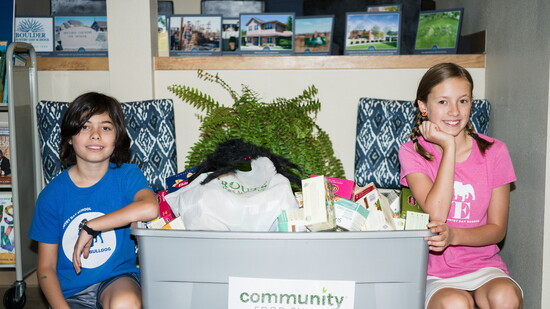At Boulder Country Day School, students don’t just prepare for the future—they begin shaping it from their earliest years. Guided by the belief that “empowered minds ignite global change,” the Preschool–8th–grade school blends challenging academics with a commitment to belonging and service, helping students understand both themselves and their impact on the world around them.
The school’s origins reflect that same spirit of community and purpose. “BCD was founded in 1988 through the amazing efforts of a community,” says Diana Emerson, Director of Marketing and Alumni Relations. Parents helped transition a former for-profit model into today’s nonprofit school, establishing a culture grounded in partnership and involvement. That legacy continues in an environment Diana describes as both “highly personalized” and rich with opportunity—offering STEM, arts, world languages, music, and differentiated academic and social support.
Values like Taking Care of Ourselves and Others and Be Part of Something Bigger are not abstract ideas; they show up in daily interactions and classroom culture. Tanya Chargualaf, Director of Belonging and Community Support, notes that when students feel connected, “belonging takes root,” and that sense of affirmation and relationship-building is what allows the community to thrive. A schoolwide social-emotional curriculum ensures continuity: younger students begin with kindness and empathy, while older students gradually deepen their understanding through more complex work.
Belonging isn’t treated as separate from academics—it’s embedded across disciplines, campus life, and relationships. Tanya says the school operates as “one seamless, integrated system,” aligning counseling, equity initiatives, health services, curriculum, and family engagement so students are supported from every angle. Parents are included through committees and the active Parents’ Association, ensuring families feel involved and heard.
This integrated philosophy extends naturally to BCD’s approach to service learning. Rather than treating service as an add-on, the school links it directly to classroom learning, helping students apply knowledge in ways that matter. When projects connect to curriculum, students not only understand issues more deeply but also adjust plans, problem-solve, and collaborate through real challenges.
One longtime partnership with Community Food Share offers even the youngest students meaningful entry points into complex issues. Hunger is a concept that all children can relate to, making it a powerful starting point for discussing food insecurity. After pandemic disruptions, BCD has reaffirmed relationships and created new service opportunities tailored to different age groups.
Other projects develop from classroom needs or curiosities. Building squirrel homes for the Greenwood Wildlife Rehabilitation Center started as a woodworking lesson and grew into a campus-wide effort. Fifth graders led the charge, reading wildlife-themed books to preschoolers, who then gathered pinecones to use as animal habitats. Younger grades created rice socks in science to warm orphaned wildlife, while older students constructed habitats and enrichment structures for the same purpose. The academic lessons—on stewardship, habitats, and local ecosystems—were matched by a sense of purpose. Students see their work come to life beyond the classroom walls.
Hands-on service projects like these help students form connections—to causes, peers, and their own capabilities. “Students often share that service projects make them feel proud and capable because they can see the real impact of their work,” says Susan Boyle, Chief Enrollment and Strategy Officer, who also coordinates BCD’s community service program. “They talk about feeling more connected not only to the people or causes they’ve supported but also to their classmates.” Shared experiences deepen both identity and a sense of belonging, reinforcing that they are contributors to their community, not just observers.
The work doesn’t stop with students. Teachers, parents, staff, and trustees participate in service projects throughout the year, modeling the values that students are encouraged to embody. Susan notes that when service includes the wider community, students see that meaningful change “happens when people of all ages work together.” This spring, BCD will host a school-wide volunteer day at Community Food Share, bringing families, employees, and children together under a shared purpose.
As the school expands partnerships and opportunities, its mission becomes tangible—and lived rather than just stated. Community service, Susan says, takes BCD’s values “off of our classroom posters and into their everyday lives,” affirming students’ identities and their place in something larger than themselves.
At Boulder Country Day School, learning isn’t confined to textbooks or classrooms. It’s expressed through empathy, action, and connection—where belonging is built, service is shared, and education prepares students not just to participate in the world, but to shape it.
To learn more, visit BoulderCountryDay.org.
